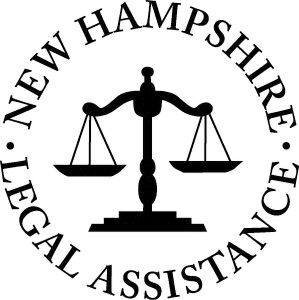Covid-19: Sexual Harassment and Predatory Landlords in NH
A Landlord Requesting Sexual Favors In Exchange For Reduced Rent Is Illegal
The landlord-tenant relationship has always been imbalanced. In fact, sexual harassment of a tenant by their landlord isn't new. Typically, low-income women have been the most vulnerable to a lecherous landlord's illegal conduct. However, today in the wake of COVID-19, when hundreds of thousands of renters have lost their jobs and are under extreme financial distress, the number of sexual harassment claims and incidents is on the rise.
“Sex-for-Rent” arrangements have existed long before the coronavirus, but the pandemic has created more tenants dealing with financial hardship, giving landlords a greater opportunity than ever before to take advantage of their cash-strapped tenants.
Complicating the issue shelter in place and quarantine orders increased the number of vulnerable tenants who have no escape from the pressures of a predatory landlord. While women have a justified fear of their landlord retaliating if they do not agree to their illegal sexual advances, emergency laws have been adopted to keep tenants who are experiencing financial difficulty during the pandemic in their homes if they can not pay the rent.
Have You Been A Victim of Sexual Harassment? You Have Legal Recourse
In many low-income communities, poor women, especially women of color, are the likely victims of this housing-based sexual harassment. Because their landlord wields power over their lives, many are reluctant to accuse them of harassment.
Even before the COVID-19 pandemic, instances of housing-based sexual harassment were on the rise throughout the country. In 2019, the U.S. Department of Housing and Urban Development received 246 complaints of housing-related harassment, more than double the 103 complaints received in 2017.
While the numbers are still being calculated since the pandemic, a recent report by the National Alliance for Fair Housing suggests that increased attention of sexual harassment in housing has lead to an unprecedented rise in the number of cases.
The #MeToo movement, along with increased scrutiny by the Federal Agencies in recent years, are believed to have contributed to the rise of cases being reported. Solo practitioners like landlords and property managers are contributing the majority of offenses because they tend to fly under the radar, but thankfully that is rapidly changing.
While most employers have anti-harassment protections in place, along with clear procedures for filing complaints, that has typically not been the case with housing providers. A joint initiative between HUD and the Justice Department has changed that.
Under Federal law, HUD is tasked with administering and enforcing the provisions of the Fair Housing Act. If a landlord is reported to HUD and they find that he is in violation of the Act, the agency can prevent them from having any future contact with tenants, among other forms of relief. The Justice Department has taken on larger “pattern or practice” cases that involve multiple women complaining about the same landlord. The Department of Justice, in connection with HUD, has been bringing more sexual harassment complaints in recent years.
Working through the Civil Rights Division to investigate, charge and try those landlords and housing providers who engage in this heinous illegal behavior, the DOJ is increasing enforcement. The Department of Justice also suggests that along with Federal engagement, tenants who have experienced housing-based harassment seek help from local legal and social services, including human rights commissions.
Know Your Rights on Fair Housing
Landlords that sexually harass tenants are often serial offenders that were active before the pandemic. You need to be aware of what conduct is considered illegal and what to do if you are feeling pressured, intimidated, or sexually harassed at any time during your residency.
Sexual harassment is illegal under both Federal and New Hampshire laws. If you have been the target of inappropriate statements, sexual harassment, or a request for sexual acts in lieu of or for reduced rent, the NHLA's Fair Housing Project is here to help.
In New Hampshire, it’s illegal to discriminate in housing based on someone’s familial status, race, color, national origin, religion, sex, disability, age, marital status, sexual orientation, or gender identity. If you have any questions or your rights have been violated, contact NHLA today.
"The work that provided the basis for this publication was supported by funding under a grant with the U.S. Department of Housing and Urban Development. The substance and findings of the work are dedicated to the public. The author and publisher are solely responsible for the accuracy of the statements and interpretations contained in this publication. Such interpretations do not necessarily reflect the views of the Federal Government.”

